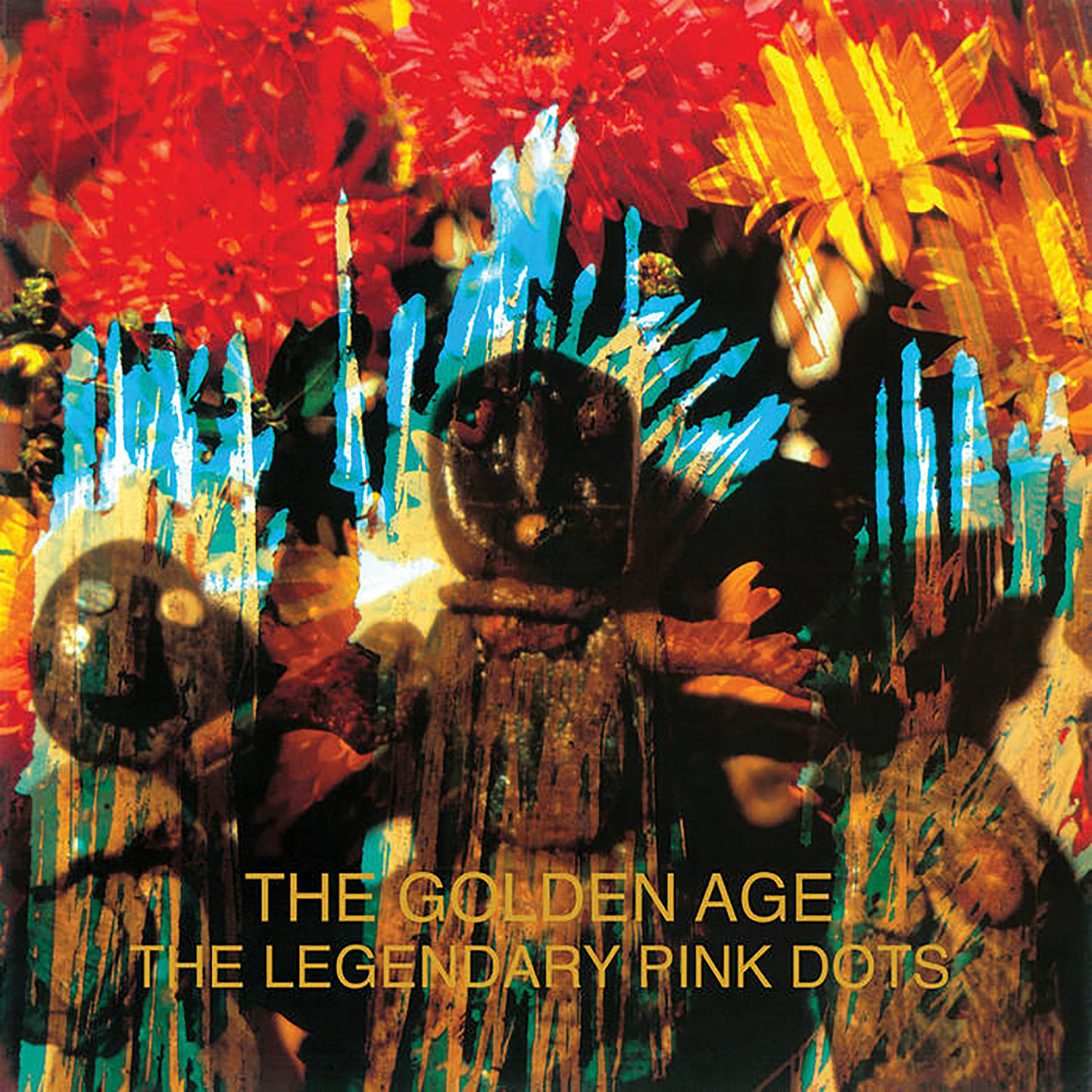Legendary Pink Dots, "The Golden Age"
 Newly remastered and reissued on Metropolis, 1988's The Golden Age hails from an especially transitory and unsettled phase of The Legendary Pink Dots' history: it was composed in the wake of a disastrous tour in which half of the band quit. Also, Edward Ka-Spel and The Silverman were kicked out of their squat in Amsterdam and left the city to take up residence in Niels van Hoorn's caravan in the countryside. And, to flesh out that scene still further, the album was recorded in a poorly heated farmhouse. That seems like quite a dark and rough stretch to me, yet it is clear from interviews that Ka-Spel found the experience refreshing and creatively rejuvenating and both he and The Silverman have since singled out The Golden Age as one of their favorite LPD releases. I cannot say that I fully share that assessment myself, as it is a bit of a difficult and uneven album at times, but there is definitely a brilliant EP lurking among this strange and kaleidoscopic suite of songs. At its best, The Golden Age feels like a playfully lysergic, darkly whimsical, and endearingly baroque series of regret-soaked scenes plucked from a vivid, haunting novel that only exists in Edward Ka-Spel's head.
Newly remastered and reissued on Metropolis, 1988's The Golden Age hails from an especially transitory and unsettled phase of The Legendary Pink Dots' history: it was composed in the wake of a disastrous tour in which half of the band quit. Also, Edward Ka-Spel and The Silverman were kicked out of their squat in Amsterdam and left the city to take up residence in Niels van Hoorn's caravan in the countryside. And, to flesh out that scene still further, the album was recorded in a poorly heated farmhouse. That seems like quite a dark and rough stretch to me, yet it is clear from interviews that Ka-Spel found the experience refreshing and creatively rejuvenating and both he and The Silverman have since singled out The Golden Age as one of their favorite LPD releases. I cannot say that I fully share that assessment myself, as it is a bit of a difficult and uneven album at times, but there is definitely a brilliant EP lurking among this strange and kaleidoscopic suite of songs. At its best, The Golden Age feels like a playfully lysergic, darkly whimsical, and endearingly baroque series of regret-soaked scenes plucked from a vivid, haunting novel that only exists in Edward Ka-Spel's head.
Despite hemorrhaging several members on that ill-starred tour, The Legendary Pink Dots were still clinging somewhat tenaciously to being a full band during their pastoral exile, as Ka-Spel and The Silverman were joined by Hans Meyer and Patrick Q. White.The presence of the latter is especially important, as his lovely and melodic violin arrangements provide an elegance and Romantic grandeur that beautifully counterbalances the colorfully off-kilter and carnivalesque surreality of these songs.That is especially true of "Hotel Noir," the album's quietly devastating centerpiece.Lyrically, "Noir" easily ranks among Ka-Spel's most gorgeously poetic and evocative work, as a melancholy ghost wistfully recounts his past romantic conquests in a lonely hotel room, belatedly feeling the sting of his misdeeds over a backdrop that sounds like a hallucinatory ballroom dance.Without the layers of strings, it would still be a delightful piece of music, but it would not pack nearly the same emotional punch: Wright's languorously dancing and swooning strings add a welcome gravitas that the synths and drum machine could never achieve on their own.The album's second masterpiece follows just a few songs later with "The Month After," which improbably combines a stumbling, clattering drum machine beat, candy-colored neo-classical fluorishes, and an almost reggae-style piano groove into a darkly psychedelic flight of pop genius.Also, it features one of the most bizarrely poignant verses in the entire LPD canon ("I laughed when you called me the snail...you're not such a picture yourself").
The rest of the album is a bit of a mixed bag, however, as a handful of other gems rubs elbows with some rough moments that either did not age particularly well or just feel like bombastic filler.The former, unfortunately, is best illustrated by the opening "Maniac," which clumsily erupts into double-time violin and guitar shredfests.Of the latter, "And Even The Vegetables Screamed/Regression" is the most uncomfortably heavy-handed, while "Stille Nacht" merely feels like a hallucinatory locked-groove experiment that would have been a better fit on one of the band's more abstract albums.Those rare creative misadventures aside, The Golden Age is mostly a collection of wonderfully skewed and psych-damaged art-pop that captures the band in a particularly hook-minded and concise state of mind.The lilting "The More It Changes" is simply a straight-forward good LPD song, but both "Methods" and "Lisa's Separation/The Golden Age" have enough flourishes of inspiration or striking strangeness to elevate them into something more memorable.If I was curating my own perfect version of The Golden Age, however, I would augment "Hotel Noir" and "The Month After" with just the skittering melancholy of "The Talent Contest" and the gloopily warped and macabre lunacy of "Black Castles." Admittedly, "The Talent Contest" would just barely make the cut, but the other three pieces are among the most undiluted and sustained moments of brilliance in the band's nearly four-decade career.
Curiously, the Metropolis reissue appends a handful of extra songs (mostly live recordings from 1987) to stretch the album into a double LP.I suspect this was just to lure back the fans who had already purchased the 2012 or 2016 remasters that the band had digitally issued themselves.In my case, that tactic worked beautifully, but The Golden Age would have benefited more from being shortened than it did from being lengthened.That said, all of the best songs conveniently fall on the first LP, so I suppose Metropolis cunningly achieved the best of both worlds (whether that was their intention or not).More importantly, their beautiful vinyl reissue did exactly what beautiful vinyl reissues are supposed to do: it grabbed my attention and got me to spend some serious time with an album that I never fully appreciated or ever thought about all that much.And The Golden Age is an album that very much deserves that renewed attention and reevaluation.There is probably some glib and wince-inducing metaphor that I could come up with about how imperfections make a diamond more special, but it would be more accurate to simply say that this album reflects a period of white-hot inspiration that occasionally yielded some absolutely revelatory results.It is always a delight to discover that some of my new favorite songs have been secretly hiding in my collection all along.While there are definitely several LPD albums that are more uniformly strong than The Golden Age, I would be hard-pressed to think of any that hit higher highs.
Samples can be found here.



